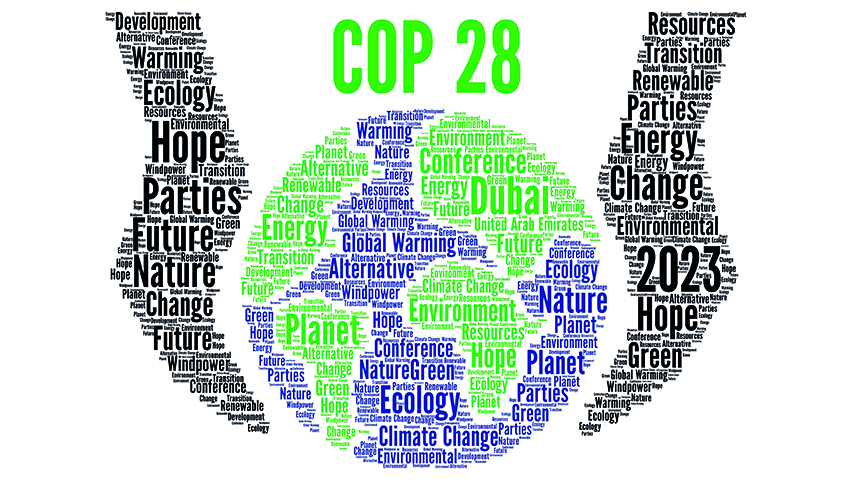As the world grapples with unprecedented environmental changes, the United Nations Climate Change Conference, commonly referred to as COP28, emerges as a critical platform for global discourse on climate action. Amidst this dialogue, a unique perspective is offered from the Christian viewpoint, one that emphasizes stewardship of the Earth as a divine responsibility and a call to communal action. This article delves into the multifaceted implications of climate change, the theological underpinnings motivating action, and the vital role Christians play in this global narrative.
The foundation of the Christian perspective on climate action lies in the concept of stewardship, rooted in the belief that humanity is entrusted with the care of God’s creation. Genesis 2:15 presents this notion clearly: “The Lord God took the man and put him in the Garden of Eden to work it and take care of it.” This divine mandate illustrates that humans are not merely inhabitants of the Earth but rather caretakers, tasked with the responsibility of preserving the natural world. Ethical imperatives emerge from this scripture, compelling believers to engage in sustainable practices that reflect reverence for God’s creation.
As climate change accelerates, evidenced by rising global temperatures, extreme weather events, and loss of biodiversity, Christians are called to reflect on the moral urgency of the situation. The Christian tradition emphasizes love and compassion, principles that extend beyond interpersonal relationships to encompass the environment and all living things. As stewards, Christians are called to exhibit a profound regard for God’s handiwork, advocating for policies and practices that address the environmental crises threatening the fabric of life on Earth.
In the realm of the United Nations Climate Change Conference, a plethora of content awaits attendees and participants alike. The conference serves as a crucible for dialogue, where diverse voices converge to share insights, innovations, and strategies aimed at combating climate change. From scientific presentations elucidating climate data to faith-based discussions focusing on moral imperatives, the scope of content is richly varied.
Workshops frequently explore how faith communities can facilitate positive environmental actions through grassroots initiatives. Engaging discussions delve into the intersection of faith and environmental stewardship, often highlighting successful case studies of churches and religious organizations that have mobilized their congregations toward ecological responsibility. The conversations extend to practical applications, such as sustainable farming practices, water conservation efforts, and reduction of carbon footprints, all framed within the context of Christian ethics.
Among the informative sessions, keynote presentations often spotlight prominent theological leaders who link scriptural tenets to climate action. These leaders frame climate change as more than a scientific dilemma; they present it as a spiritual crisis demanding urgent collective action. Their teachings resonate with the faithful, encouraging a deeper understanding that caring for creation is synonymous with loving one’s neighbor and ensuring future generations inherit a livable planet.
The conference also emphasizes advocacy and policy engagement, where Christians are encouraged to engage with political systems. By influencing legislation intended to combat climate change, believers can act as agents of transformation. The narrative shifts from personal piety to communal witness, as Christians engage in a moral obligation to advocate for systemic change on both local and global scales. This engagement transcends theological boundaries, inviting collaboration with people of all faiths and ideologies united by a common objective: safeguarding the planet.
Discussions at the conference further extend to corporate responsibility and sustainability, reflecting a recognition that businesses play a pivotal role in either exacerbating or alleviating climate challenges. Christians are called to scrutinize ethical consumption and support businesses that demonstrate genuine commitment to environmental stewardship. Resources and frameworks provided during the conference equip participants with knowledge and tools to make informed choices that align with faith-based values.
An important aspect of the conference content is the emphasis on youth engagement. Acknowledging that the younger generation will bear the brunt of environmental mismanagement, the conference incorporates initiatives to educate and empower young Christians. Workshops tailored for youth encourage activism, fostering a sense of agency among younger generations to advocate for climate justice. Through art, social media campaigns, and innovative outreach programs, they learn to express their concerns and inspire their communities to take meaningful action.
The involvement of faith leaders at COP28 holds immense significance. Their collective voice amplifies the moral dimensions of climate change, fostering a sense of urgency that resonates across congregations worldwide. This unifying call to action encourages individualized and communal reflection on environmental justice, compelling Christians to consider the implications of their lifestyles and choices on the wider community and creation itself. The teachings shared can lead to transformative actions within congregations, inspiring service projects and local initiatives focused on sustainability.
In summary, the United Nations Climate Change Conference provides a vital platform for Christians to engage in the global dialogue surrounding climate action. By grounding their efforts in biblical stewardship, love, and a commitment to justice, they can effectively contribute to the broader narrative of ecological preservation. The interplay of theological reflection and practical engagement is pivotal, encouraging a holistic approach to the climate crisis. Through collaborative action, innovation, and spiritual leadership, Christians can indeed become transformative agents in the global movement towards sustainable living, ensuring that the Earth is not only preserved but honored as a testament to the Creator’s goodness.



